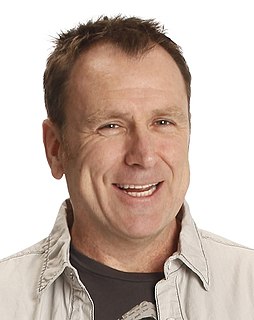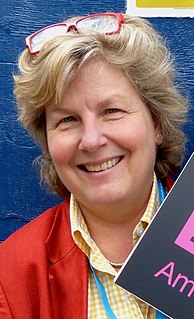A Quote by Margaret Atwood
When I was young I believed that "nonfiction" meant "true." But you read a history written in, say, 1920 and a history of the same events written in 1995 and they're very different. There may not be one Truth - there may be several truths - but saying that is not to say that reality doesn't exist.
Related Quotes
Fiction and nonfiction are not so easily divided. Fiction may not be real, but it's true; it goes beyond the garland of facts to get to emotional and psychological truths. As for nonfiction, for history, it may be real, but its truth is slippery, hard to access, with no fixed meaning bolted to it. If history doesn't become story, it dies to everyone except the historian.
O Lord, may I never want to look good. O Jesus, may I always read it all: out loud and the very way it should be. May I never look at the other findings until I have come to my own true conclusions: May I care for the least of the young: and become aware of the one poem that each may have written; may I be aware of what each thing is, delighted with form, and wary of the false comparison; may I never use the word "brilliant."
It may be that we exist and cease to exist in alternations, like the minute dots in some forms of toned printing or the succession of pictures on a cinema film. It may be that reality is an illusion of movement in an eternal, static, multidimensional universe. We may be only a story written on the ground of the inconceivable; the pattern on a rug beneath the feet of the incomprehensible.
The establishment, both parties, think "Donald Trump may have built buildings and he may have written The Art of the Deal, but he can't do what we did. He can't even understand what we do because he's too stupid." They may not say it that way, but I guarantee you they have that attitude. These are arrogant people. They're very exclusive. It is a very elite, unique group, in their own minds, and they do tell themselves they're special and they're different and they're better.



































